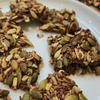Gut Expert Asks, ‘Do You Really Have IBS?’

If you recently visited a Gut Expert who questioned whether you really have Irritable Bowel Syndrome (IBS), please don’t be offended. Your practitioner likely has your best interests at heart, as 60-80% of IBS cases are misdiagnosed and likely attributed to a different, yet similar, digestive condition.
As a Gut Expert, I’ve posed this question to clients. While it’s tricky to challenge an IBS diagnosis, whether it came from another qualified practitioner or Dr. Google or from a well-meaning internet search that began with ‘best naturopath near me’ and then went awry, it’s my responsibility to ensure clients receive the correct diagnosis – so they can receive the most effective treatment.
So what condition is often misdiagnosed as IBS?
Small Intestinal Bacterial Overgrowth (SIBO).
You’ll ideally consult a gut expert to determine which condition you’re dealing with, but here’s a rundown of each so you can begin to understand the differences, and the similarities.
What Is Irritable Bowel Syndrome?
IBS is an incredibly common digestive disorder that affects up to 23% of the population (1). It’s known for sending people to the loo far too often, as diarrhoea is one of the most common symptoms. In saying this, constipation can be a feature, as well as the mainstays of bloating, abdominal pain and discomfort (2).
While there’s still a lot to learn about IBS, we know that it’s related to issues with muscle contractions (motility), dysfunction in muscle and organ signalling systems, and irritation of the intestines. Psychological stress often contributes to the development of each person’s unique set of symptoms (3).
A solid treatment program for IBS is yet to be internationally established. Despite this, it’s clear that most people with IBS have symptoms that are triggered by foods high in FODMAPs. Therefore, a low FODMAP (fermentable fibre) diet is often recommended for symptom relief. Unfortunately, as most gut specialists will tell you, this diet doesn’t address the cause of IBS issues and only provides conditional symptom reduction (4).
This is where SIBO comes in…
The gut condition called SIBO also presents with symptoms that often reduce when adopting a low FODMAP diet (5), which raises the question – Do you have really have IBS… or is it actually SIBO?.

What Is Small Intestinal Bacterial Overgrowth?
SIBO is characterised by abnormally high levels of bacteria in your small intestine. It generally presents with similar symptoms to IBS, which is why it’s sometimes overlooked during the differential diagnosis stage.
Symptoms usually reduce when you avoid high FODMAP foods because, in SIBO, these foods fuel your gut bacteria. When there is an overgrowth of bacteria in your small intestine, the natural fermentation process produces a large amount of gas, which you may recognise as bloating (5).
While your digestive system is happiest when your gut is full of bugs from a variety of species, your small intestine – which can erroneously become overloaded with bacteria in SIBO - is one area where fewer numbers of bacteria is best for your gut wall and overall health.
SIBO can occur at any age and has many risk factors, some of which are similar to IBS: low stomach acid, irregular bowel movements, unhealthy gut wall and changes in your gut flora (8). The use of antibiotics or the oral contraceptive pill, drinking alcohol and stress also increase your risk of SIBO (9). Untreated SIBO has been linked to a huge number of conditions including depression, anxiety (12), fibromyalgia (13), hypothyroidism and rosacea (14), so it’s important to identify and address it as soon as possible.
What Does This Mean For You?
If you’ve been diagnosed with IBS, it’s certainly possible that you do have IBS. However, if you’re on a specialised treatment plan that isn’t helping, know that:
a. IBS could be a misdiagnosis for SIBO, or
b. You could have IBS and have SIBO as a contributing factor (10).
Your next step in gaining clarity involves consulting a Gut Expert for a thorough assessment. Each practitioner takes a slightly different approach to treatment and, personally, I’m also a qualified Naturopath and Nutritionist, which means my treatment protocols involve science, lab testing (where indicated) and holistic considerations of your individual situation.
If you’re keen to take an integrated approach, this is when the ‘best naturopath near me’ search we spoke about earlier may be useful. Or, you could join Bloated to Body Confident which helps bloating, IBS and SIBO sufferers live a normal life full of freedom and confidence, without food anxiety and digestive discomfort, with the complete step-by-step system to heal your gut from the root cause.
In Bloated to Body Confident I share the step-by-step strategy for finding your root cause, comprehensive functional and diagnostic testing, personalised dietary advice, holistic support, effective treatments and sustainable solutions, empowering evidence-based information in a clear action plan.
-
Posted in
Bloating, Gut Health, IBS, SIBO






